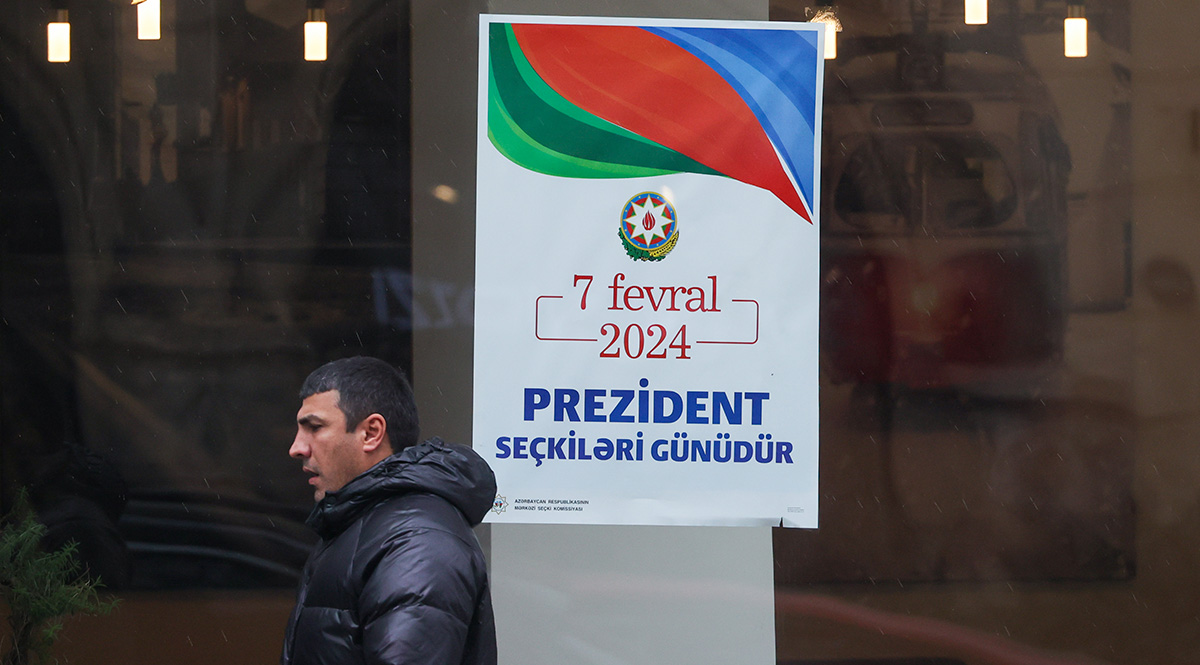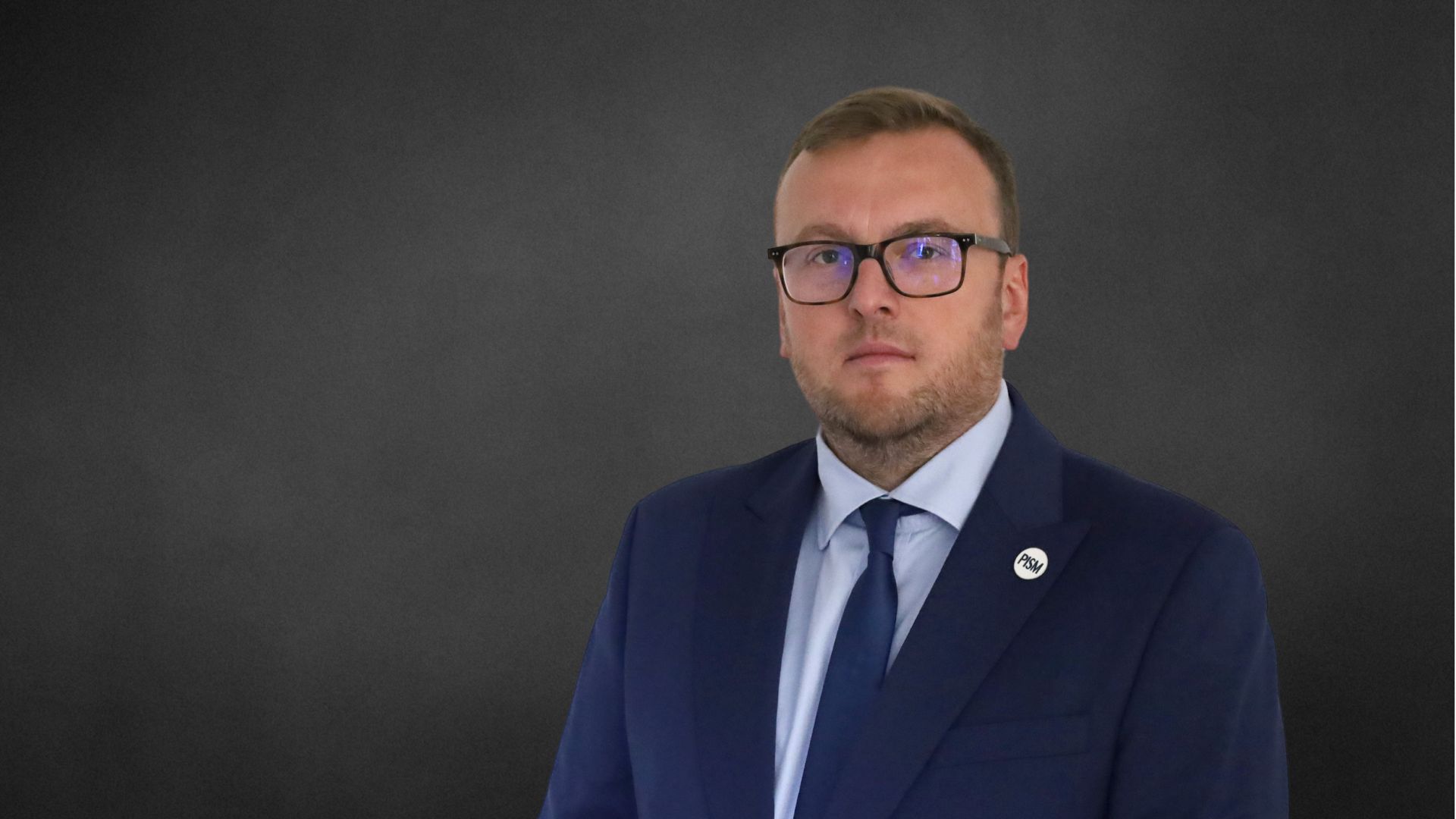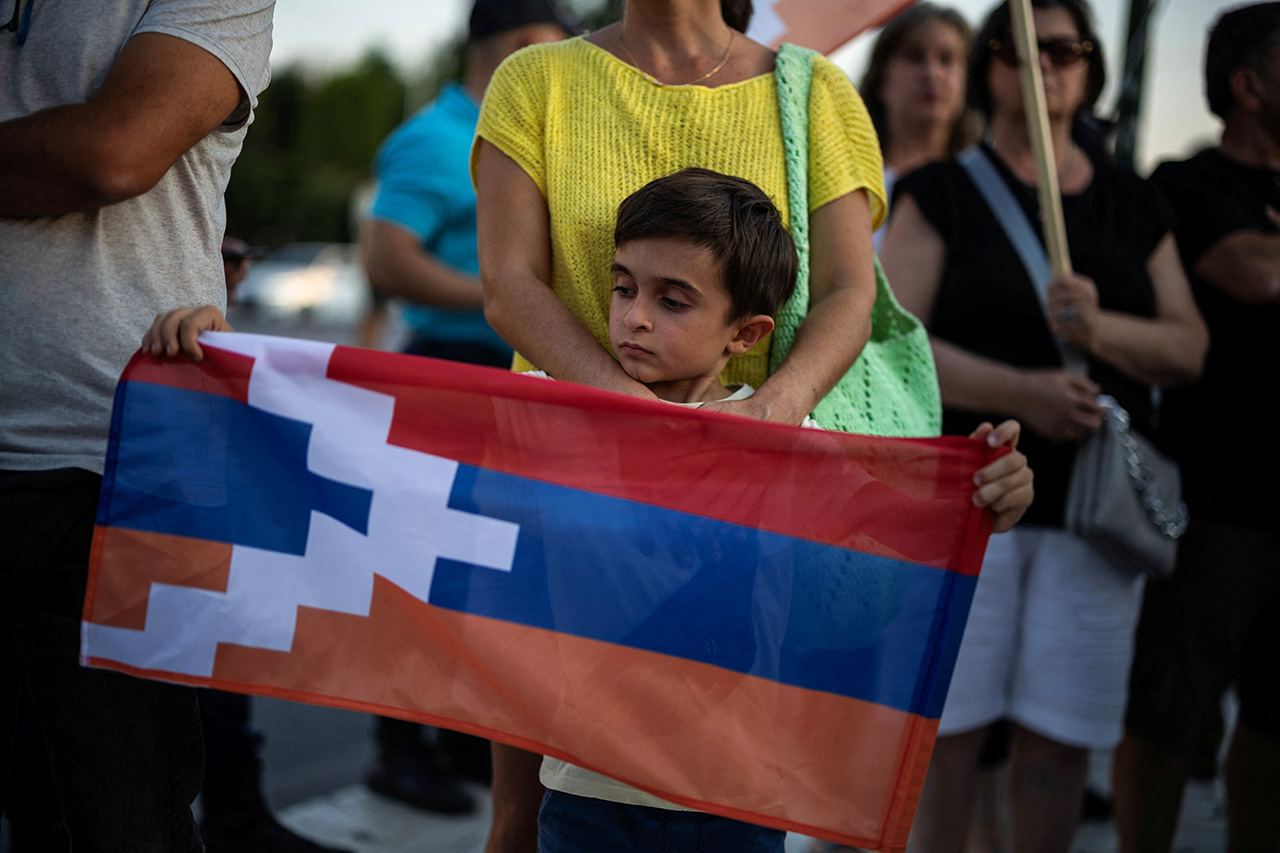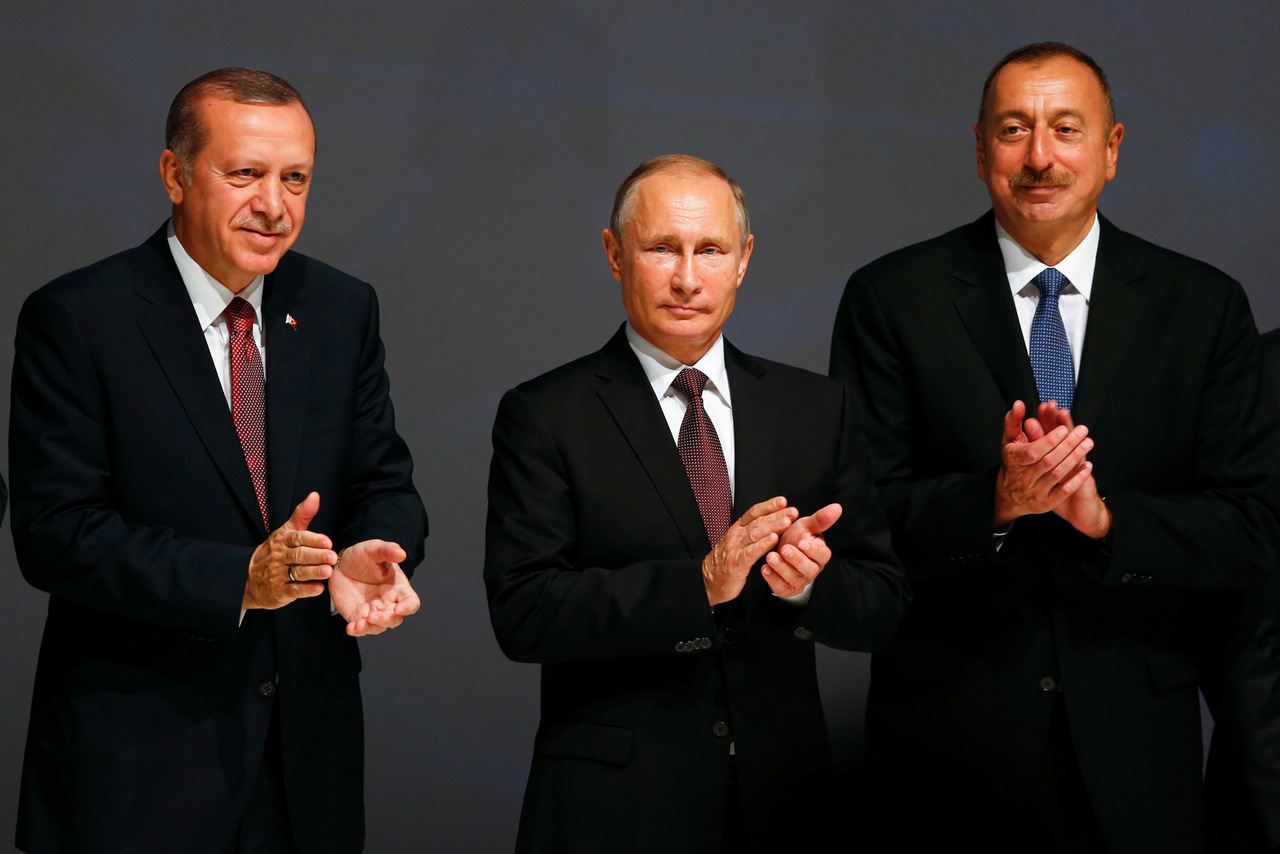Azerbaijan's Leader Calls Early Presidential Elections
Azerbaijani President Ilham Aliyev last December announced early presidential elections. Instead of October 2025, they will be held on 7 February this year. The incumbent president will almost certainly win the election, and the election process will not be democratic. Once the “mandate” is renewed, expect a tightening of the authoritarian course and an attempt to finally settle disputes with Armenia.
 Petrov Sergey / Russian Look / Forum
Petrov Sergey / Russian Look / Forum
Azerbaijan is an authoritarian state, ruled for more than 20 years by Aliyev. Holding elections ahead of schedule is unprecedented. The last parliamentary elections were held in February instead of November 2020, and the previous presidential elections were held in April instead of October 2018. Aliyev’s changes to date, extending presidential terms from five to seven years and abolishing the limit, motions approved in referendums in 2016 and 2009, respectively, ensure that he can remain in office for many years.
Reasons for Early Elections
The shortening of his term by more than a year and a half was dictated by Aliyev’s desire to reap his success in recent years in restoring the country’s territorial integrity. According to unofficial polls commissioned by the authorities, support for his regime rose sharply in late 2020 and peaked in the fall of 2023. After nearly 30 years, the main goal of the Aliyev clan (in 2003, Ilham Aliyev succeeded his father, Heydar, who had ruled since 1993, also as president), namely regaining control over Nagorno-Karabakh, to which all areas of state activity (foreign policy, state media coverage, the armed forces) were subordinated. Accordingly, the president decided to take advantage of positive public sentiment and renew his mandate. According to official rhetoric, moreover, the early presidential elections will mark the beginning of a new era in Azerbaijan’s history, as they will be held throughout its territory.
The early elections, though, are linked more likely to Aliyev’s fear that public support for him will begin to decline. The deteriorating economic situation could lead to this: from January to November last year, GDP grew by just 0.2% (compared to an average of about 5% in 2021-2022). Experts predict that this year and next, Azerbaijan will see only modest economic growth of around 2.5%. In recent months, there has been growing discontent among Azerbaijanis living in underinvested regions, who are eyeing infrastructure investments promoted by state propaganda in Nagorno-Karabakh and the seven regions surrounding the separatist republic, which were controlled by the Armenians until 2020.
Another reason for early elections is also the election cycle in other countries and organisations that have and will continue to influence Azerbaijan in the context of its relations with Armenia. There are presidential elections in Russia in March, European Parliament elections in June, and the U.S. presidential election in November. Aliyev wants a stronger position in relations with them at the end of the electoral process.
Candidates and Campaigning
The presidential election will not be democratic, with all six of Aliyev’s challengers coming from the concessionary opposition. In addition to the incumbent president, candidates vying for the country’s highest office include Zahid Oruc (an “independent” candidate) and Qudrat Hasanquliyev (chairman of the All Azerbaijan People’s Front party), both of whom also ran in 2018, winning 3% of the vote each. This year’s elections were boycotted by the two most serious forces in the Azerbaijani opposition—Musavat and the Popular Front. Their leaders accuse the president of failing to precede the decision to hold early elections with political and social consultations, and they had too little time to collect the 40,000 signatures required to register candidates.
The campaign lacks the democratic character familiar in Western European democracies. State media coverage is dominated by the person of Aliyev. The other candidates are conducting sham activity, and in their statements often support the incumbent head of state. Their presence in the electoral process is needed by the president to lend him credibility, creating the appearance of pluralism and fairness. Aliyev himself does not meet with the electorate at election rallies. There are also no officially conducted pre-election polls.
The campaign period has been marked by an increase in the regime’s repression of independent politicians and journalists to eliminate possible obstacles to Aliyev’s re-election. Ten independent journalists were arrested in the last quarter (the first, from the Abzas Media editorial board, as recently as late November last year). Tofiq Yaqublu, a prominent Musavat party activist, was jailed in early December. Those arrested have added to the ranks of political prisoners in Azerbaijan, whose number the Human Rights House Foundation estimates at around 235.
Elections and Relations with Armenia
The early elections have given the Azerbaijani authorities an excuse to slow down talks with Armenia on settling bilateral relations and signing a peace treaty. The negotiations have been at an impasse for several months due to the lack of a compromise solution on opening transport routes between the two countries. The second problem is the lack of progress in the demarcation and delimitation of the Azerbaijani-Armenian border. The Azerbaijani authorities are increasingly expressing dissatisfaction with the intermediation of the U.S., the EU, and Russia in the peace process. They stress that, in their view, the best solution would be a bilateral agreement without the participation of third parties. The Azerbaijani authorities’ message also increasingly includes content about the possible signing of partial agreements with Armenia (e.g., on mutual recognition of territorial integrity) instead of a comprehensive peace treaty.
From the point of view of the West, early elections that affect the already protracted peace talks with Armenia are unfavourable. Both European Council President Charles Michel and U.S. President Joe Biden would like to bring the negotiations to the desired conclusion, namely, the signing of a peace treaty, before the end of their terms. On the other hand, however, early elections postpone the resolution of the existing disputes between Azerbaijan and Armenia, even with pressure. The Azerbaijani authorities had not decided before the elections to introduce the military into the disputed villages on the Azerbaijani-Armenian border or into the so-called Zangezur transport corridor (the connection between so-called Azerbaijan “proper” and the Nakhchivan exclave).
Conclusions and Prospects
Aliyev’s victory in early elections seems certain. The elections will not be democratic despite the invitation of the OSCE election observation mission to Azerbaijan (similar to previous presidential and parliamentary elections). The authorities will aim for a better result than in 2018 (86% support) and a higher voter turnout than six years ago (74.2%). These elections will be held throughout Azerbaijan for the first time in more than 30 years as it regained control of Nagorno-Karabakh, which is widely considered a huge success for those in power. As a result, it is likely that the authorities will not have to make many efforts to achieve a good result, as they see it.
After the elections, it is to be expected that the authoritarian course will tighten, further restricting human rights, including political rights, media freedom, and the ability of civil society to function. There has been no deterioration in relations with Armenia, but in the months surrounding the elections there is increased pressure on Armenia to settle problematic issues in bilateral relations, either diplomatically or, as a last resort, militarily.
The Azerbaijani authorities will continue to promote the position that no external guarantor of an agreement with Armenia is needed, thus seeking to reduce the pressure and influence of Russia, Iran, the EU, and the U.S. in the South Caucasus region. Azerbaijan will continue its previous multi-vector foreign policy of not entering into permanent alliances with any of the key external actors, except for ally Turkey, and manoeuvring between their conflicting expectations to pursue its own interests. Both Poland and the EU may consider reiterating their insistence on the release of political prisoners and respect for human rights in Azerbaijan, but no change is expected from its authorities in this regard after the elections.



.jpg)

